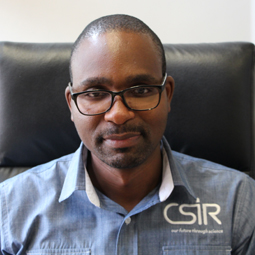Exhibition on 4th Industrial Revolution opened in Parliament
The Department of Science and Technology (DST) has partnered with Parliament to produce an exhibition demonstrating South Africa's readiness to embrace the 4th Industrial Revolution (4IR).
The 4th Industrial Revolution (4IR) refers to the current and developing environment in which disruptive technologies and trends such as the Internet of Things and virtual reality are changing the way people live and work.
President Ramaphosa's State of the Nation Address on 7 February highlighted the need for South Africa to prepare for the 4th Industrial Revolution, referring to the Presidential Commission he has appointed for this purpose.
The Department of Science and Technology (DST) has partnered with Parliament to produce an exhibition demonstrating South Africa's readiness to embrace the 4th Industrial Revolution (4IR).
The 4th Industrial Revolution (4IR) refers to the current and developing environment in which disruptive technologies and trends such as the Internet of Things and virtual reality are changing the way people live and work.
President Ramaphosa's State of the Nation Address on 7 February highlighted the need for South Africa to prepare for the 4th Industrial Revolution, referring to the Presidential Commission he has appointed for this purpose.
The Deputy Speaker of Parliament, Lechesa Tsenoli, and the Minister of Science and Technology, Mmamoloko Kubayi-Ngubane, opened the exhibition in Cape Town this morning.
DST entities, including the Council for Scientific and Industrial Research (CSIR), are showcasing research and development in robotics, additive manufacturing, big data, artificial intelligence, e-agriculture and other areas relevant to the new digital age.
South Africa's response to the 4IR is informed by the country's socio-economic imperatives, and Parliament has noted that the national system of innovation has been active in developing a range of technologies designed to address real-life South African problems.
Touring the exhibition in the National Council of Provinces Queens Hall, the Deputy Speaker and Minister Kubayi-Ngubane said the DST welcomed the opportunity to demonstrate how science, technology and innovation could contribute to solving the problems the country was facing. For example, new sanitation technologies could enable South Africa to save water and improve the health of communities in remote areas.
"We want to make sure that we are in the centre of development. We want to make sure that South Africa's economy is driven by innovation, and come up with solutions to help us deal with problems like climate change," said the Minister, newly appointed to the World Economic Forum's multi-stakeholder global artificial intelligence council.
Kubayi-Ngubane said that South Africa would use the opportunities of the 4th Industrial Revolution to deal with poverty, unemployment and inequality. New skills will need to be developed for the new industries and markets that will emerge.
Tsenoli said that Parliament had started a programme last year to raise awareness about the importance of the new digital revolution. The exhibition was a good platform to make members of Parliament and the public think about the revolution. Tsenoli emphasised government's responsibility in this regard, and said that Parliament would continue to work with entities that promoted research and development.
Dr Daniel Visser, research and development manager at the CSIR, said it was important that the country knew how the national system of innovation contributed to socio-economic well-being through the tools and technologies it made available.
"This event with Parliament is an important showcase for agencies and entities in the innovation system to show decision-makers what is available. We need more of these interactions to show the private and public sector what the South African innovation system can do," he said.
The Chief Technology Officer at Right ePharmacy, André van Biljon, called on government to support local innovations that were tailored for the South African market rather than importing products from abroad.
Right ePharmacy has partnered with the CSIR to develop business opportunities and innovations so that medicines can be dispensed digitally in more cost-effective, convenient and accurate way.
The company's pharmacy dispensing units work like ATMs, using robotic technology to label and dispense chronic medication. This cuts the waiting periods at clinics and hospitals, relieving pressure on the public health care system.
Over the next four days, the public are invited to visit the exhibition to learn about the 4IR. Schools are encouraged to bring leaners, as they are the knowledge workers of the future and will drive South Africa participation in the 4IR.


